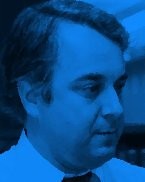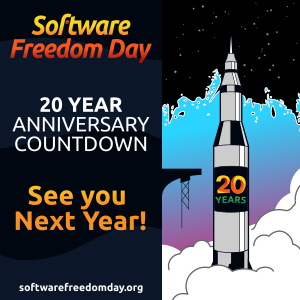skip to main |
skip to sidebar
Science Fiction author Cory Doctorow wrote an interesting column last week on Forbes.com. He has chosen to publish electronic copies of his works under a Creative Commons license that allows free copying and distribution.
Users/readers have downloaded over 700,000 copies of his first book, translated in into several languages, formatted it for various online devices and uses (including the Djvu scanned document format!), and created two competing audio book adaptations. His other books have been similarly licensed, with similar results.
Doctorow still sells print copies of his works, and he figures that while giving away electronic copies may cost some sales to online readers, others decide to purchase print copies. Mainly, though, he profits from the exposure he gets from the user community that has grown up around discussing and distributing his books online.I've heard it said that for most artists, musicians, and writers the real problem isn't piracy, it's obscurity. Doctorow (with his print publisher's permission) used free online distribution to overcome this.
But it's more than just a stunt. "You sure can't force a reader to pay for access to information anymore," he states. Comparing this to the problem that free radio broadcasting posed for entertainers of the early twentieth century, and the elaborate tracking and licensing systems that evolved to assure the livelihood of the performers, he states that while the future of publishing is hard to predict, thanks to the Internet, "There has never been a time when more people were reading more words by more authors. "
For libraries, this points out several problems. First, although "free" certainly works for libraries, the community nature of some publishing projects makes the print version something of a digest. In some fields of scholarly publishing, the copy of record is the online copy, often including vast stores of test data. The print copy is just a sometimes convenient legacy.
How do libraries fit into this world where even in "book" publishing the printed work is no longer central? The example of radio, which like the Internet was fast, ephemeral and democratic, is not comforting for libraries. The "problem" it posed was solved for performers, but libraries (except for a few highly specialized archival libraries) have largely ignored it.






